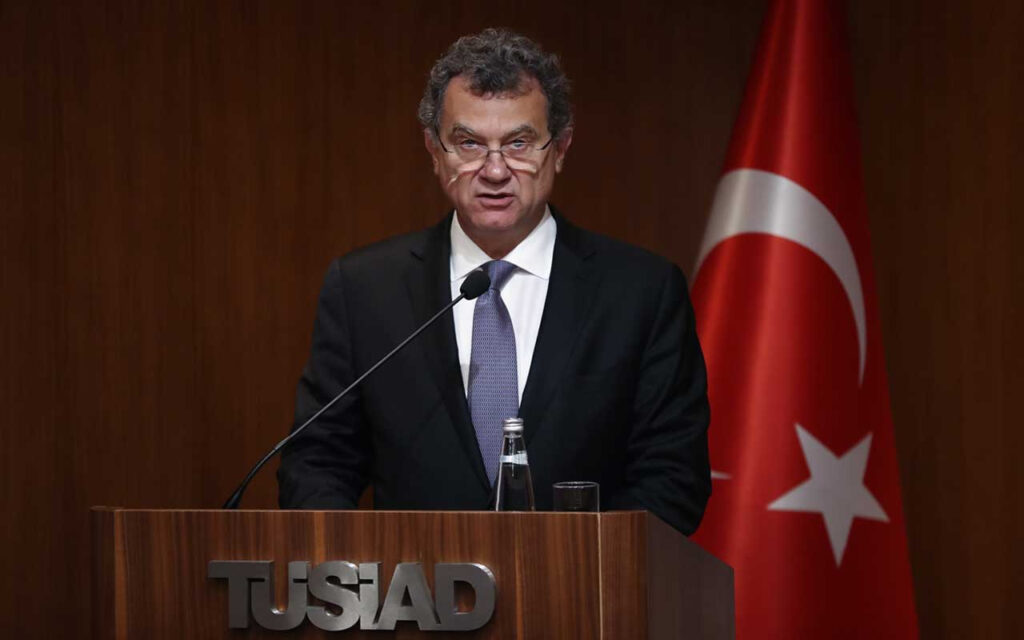Simone Kaslowski, a Turkish businessman of Italian origin and president of the Turkish Industrialists and Businessmen’s Association (TÜSİAD), has warned the authorities against early interest rate cuts, stating that cutting interest rates before structurally reducing inflation would result in higher interest rates, higher exchange rates and a loss of affluence.
“If we want permanent interest rate cuts, we must first reduce inflation structurally. First of all, we need to lower the Country Risk Premium (CRP). Financial stability and predictability are needed to lower that risk premium. Every road goes through price stability,” Kaslowski told the Dünya newspaper on Tuesday.
Turkey’s annual consumer price inflation rose to 18.95 percent in July 2021 from 17.53 percent in June, above market expectations of 18.5 percent and just below the central bank’s policy interest rate level of 19 percent. It is the highest inflation rate since April 2019.
Driven by consumer demand, depreciation of the lira and a worldwide rise in commodities prices that has left Turkey with some of the sharpest price rises globally, the country’s August inflation reading, which will be announced on Friday, is expected to stay close to the 18.95 percent logged in July.
Turkish President Recep Tayyip Erdoğan, who has sacked three central bank governors in less than three years, has called for rate cuts, saying he expects inflation to have slowed during August.
“While inflation expectations are rising in Turkey and interest rate cuts are on the agenda, I think we have entered a critical four or five months in which we must act patiently, not hastily. We are in a period where we need financial stability,” Kaslowski said.
The TÜSİAD president continued to say that if Turkey wants a permanent interest rate reduction, it must first structurally reduce inflation. “Without this, every step we take will bring to the country’s economy much higher interest rates, higher exchange rates and a loss of affluence,” he added.
“We want to stress the importance of sustainable economic growth, instead of short-term, high growth. Without this, investment and production fluctuate, income is unevenly distributed and you can’t create permanent employment. When this situation is combined with inflation, the people won’t feel economic growth in their pockets. Growth needs to be inclusive,” Kaslowski said.
The central bank is due to meet on Sept. 23 to decide on interest rates.
Turkey’s central bank has kept interest rates on hold since Erdoğan sacked and replaced its governor in March, even as inflation accelerated. Expectations for future inflation have since deteriorated as investors began to bet on early interest rate reductions and more pro-growth economic policies.
The president argues that high interest rates are inflationary, a view that contradicts conventional economic theory, which hold that rate hikes can be used to slow price increases. Turkey’s inflation rate is the highest in major emerging markets outside of crisis-hit Argentina.

